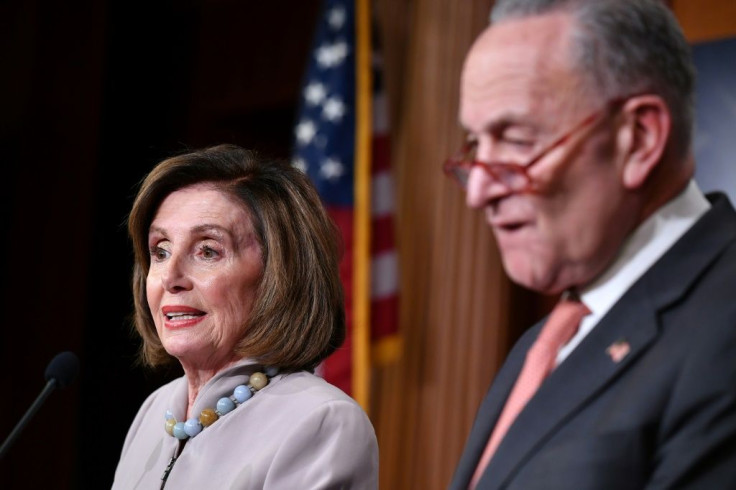Democrats Propose $30B Nationwide Coronavirus Testing And Tracking Program

KEY POINTS
- Democrats unveiled a $30B nationwide "test and trace" plan
- Coronavirus testing dropped 30% in the last week
- Sen. Schumer and the Treasury are close on a deal for increased funding for hospitals
Sens. Dick Durbin, D-Ill., Chuck Schumer, D-N.Y., Patty Murray, D-Wash., and Debbie Stabenow, D-Mich., Tuesday unveiled a $30 billion plan to develop a nationwide testing and tracking program to enable the enable the lifting of stay-at-home orders.
“We cannot end sheltering in place until we have testing in every place," Durbin said in a conference call with reporters.
Stabenow said recent data from the American Clinical Laboratory Association indicates the number of tests analyzed by commercial labs in the United States has plummeted by 30% in the past week.
“We absolutely cannot afford any backsliding, which is why Democrats are introducing our roadmap to get back on track fast," she said, adding: "We need a federally coordinated whole of society response, not one that leaves each state to fend for itself. We are calling for $30 billion in emergency funding to enable faster scaling of testing and developing different types of tests, particularly rapid response tests.”
Quest Diagnostics, one of the two major commercial lab companies in America, told Politico it is stepping up its outreach to health providers to “ensure patients are receiving testing they need.”
Schumer and Treasury Secretary Steve Mnuchin were reported closing in on a deal to provide $250 billion in aid to a small business lending program that could run out of money in the coming days, in addition to tens of billions of dollars of federal aid to hospitals and state budgets.
What has become clear in recent days is that the initial aid packages passed through Congress last month are not enough to address the scale of the crisis. A poll earlier this month indicated that the $1,200 most individuals will receive will only cover one month of expenses, and a report from The American Prospect on Monday revealed that banks have the ability to seize government checks to pay down debt owed to them.
This week also brought news that the $150 billion in aid for cities and states is woefully insufficient, and the U.S.’s testing capacity has fallen behind most other countries battling the coronavirus pandemic.
© Copyright IBTimes 2024. All rights reserved.





















